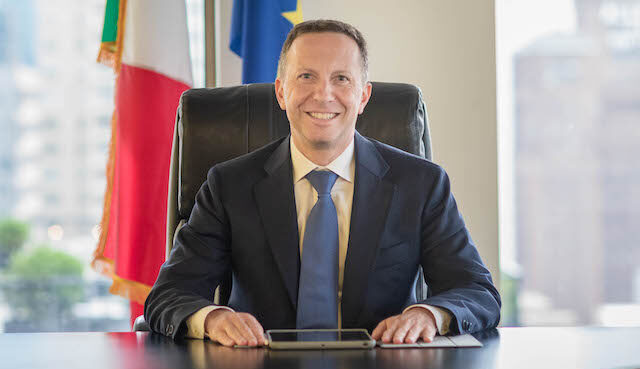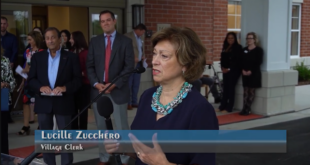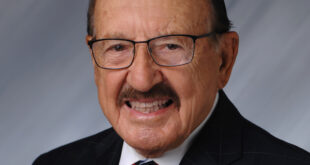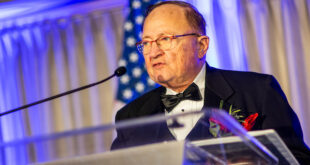With a notable diplomatic pedigree and multinational roots, Thomas Botzios brings a global perspective to his role as the Midwest’s new Italian consul general.
If anyone was born to be a diplomat, it’s Thomas Botzios.
The Midwest’s new Italian consul general pursued the same career path as his father and uncle, Elias and Christos Botzios, both of whom served in the Greek diplomatic corps, and was raised to view the profession as a noble one.
“My father always told me that being a consul is not only a matter of diplomacy, it’s a matter of service, to be of help to someone who needs it,” Botzios explains.
“More than a profession, my father gave me a heritage.”
Botzios drew additional inspiration from his father’s own youth.
“My father left his home in a little village in the north of Greece for high school in Athens and then university in Rome,” Botzios says. “Through his example, I knew what it was to leave a hometown and home country and establish a new life in another land. It changed the way I looked at life.”
While pursuing a law degree at Rome’s renowned La Sapienza university, Elias Botzios met Flora Coppotelli, who was working at her family’s business. After the two were married and Elias entered the Greek diplomatic corps, he was assigned to Rome, allowing the couple to raise their three children in Italy while maintaining close ties to Greece.
“I’m proud to have the point of views of two countries because I really believe that the Western world has its roots in those ancient periods,” Botzios says. “I consider it a privilege to have in my blood both ways of thinking.”
Botzios’ path to diplomatic service wasn’t a direct one. Like his father before him, he earned a law degree from La Sapienza. Then he worked for a publishing company and as an attorney in private practice before taking the exams at the Ministry of Foreign Affairs. Those experiences have stood him in good stead.
“Having a law degree and being in the private sector has given me a real-world perspective on how to run a public office,” he notes. “Among many other duties, a diplomat advocates for the general interests of his country, and he has to manage an office with a lot fewer resources than were available in the past.”
Botzios’ first assignment after joining the ministry in December 2001 was with the Directorate General for Human Resources. After that, he served from 2005-09 as the head of the Economic and Commercial Office in Belgrade. He accomplished one of his main goals — of building economic bridges between Serbia and Italy — during that assignment.
His next stop was in Washington, D.C., where he was chief of staff to the ambassador of Italy from 2009-13. While there, he met his future wife, Elisa Campoli, whom he married in Rome in 2020. At the tail end of his tenure in the nation’s capital, he and Campoli took a whirlwind tour of the country by car, stopping in more than a dozen states as well as in Canada. “In those 21 days, I had the chance to know the American people and the American way of thinking more than all four years in Washington, D.C.,” Botzios fondly recalls.
Botzios’ next assignment had a profound impact on him. During his seven years as the deputy head of the Ministry of Foreign Affairs’ Crisis Unit, he coordinated Italy’s efforts to assist its citizens around the world whenever disaster struck.
“We were there to help and protect Italians in great emergency, whether it was from terrorist events, kidnappings, hijackings, social unrest, earthquakes, flood or pandemics,” he shares. “You touch people, and they touch you. My counterparts were fathers, mothers, losing children, spouses. I shared their pain and helped them through the worst time of their lives. It was very challenging and demanding, and it changed me from a human and professional point of view.”
For Botzios, the position wasn’t a job; it was a mission.
“You don’t work in the Crisis Unit; you marry the Crisis Unit,” he explains. “Your mind is on it 24/7. The telephone can ring any time, day or night, and you’re on a plane to assist Italians in terrible and traumatic circumstances. I consider myself lucky to have played a part.”
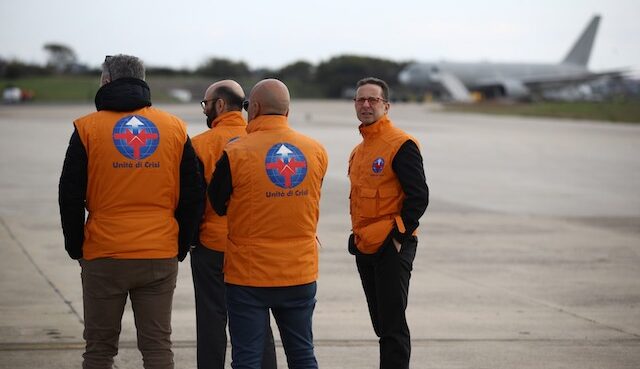
Botzios is thrilled to now be in Chicago, despite arriving in the midst of a pandemic.
“Chicago has all the advantages of a big American city, but there’s also a human dimension that you can enjoy. You can be among the skyscrapers of the Loop, but then you have all these wonderful neighborhoods,” he enthuses. “It’s a dynamic city from an economic point of view, a cultural point of view, an academic point of view, a historical point of view. I’m looking forward to getting to know the city better now that restrictions have been lifted.”
Botzios is a firm believer that consuls general should launch projects that are worthy of continuation by their successors. To that end, he has mapped out a three-part plan.
In addition to improving the efficiency of his own office wherever possible, he’s looking to work with the other Italian offices to present a united front in Chicago and the Midwest.
“We have the Italian Consulate, the Italian Cultural Institute and the Italian Trade Commission,” Botzios says. “We have different fields of endeavor — consular affairs, cultural outreach, economic promotion — but we’re all under the Ministry of Foreign Affairs, and we all serve the Italian state. I would like to work together to present Italy as one entity.”
Out in the community, he’d like to start bridging the gap between established Italian-American residents and more recent arrivals from Italy.
“We have Italians living here for decades, but we also have Italian citizens who came recently and who are physicians, university professors, scientists, entrepreneurs and other professionals,” Botzios observes. “Maybe something can be done to improve the inter-Italian dialogue, and I think the many existing associations are a great place to start. I’d also like to help in whatever way I can to improve communication and cooperation between those associations.”
On the economic front, Botzios is hoping to build bridges between businesses in Italy and the Midwest, as he did between Italy and Serbia.
“Italian entrepreneurs know the East Coast well, and then they jump right away to the West Coast. They miss the great part of the American territory in between. They don’t know the full depth of possibilities of doing business in Chicago and the Midwest, and the same can be said for business owners here,” Botzios points out. “There are so many opportunities for Italian entrepreneurs here and for Midwest entrepreneurs in Italy. I’d like to highlight those opportunities and begin the process of establishing stronger ties.”
The above appears in the August 2021 issue of the print version of Fra Noi. Our gorgeous, monthly magazine contains a veritable feast of news and views, profiles and features, entertainment and culture. To subscribe, click here.
 Fra Noi Embrace Your Inner Italian
Fra Noi Embrace Your Inner Italian


